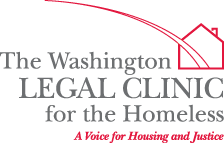Mayor Gray has faced a lot of criticism for his failure to really tackle constituents’ concerns about the lack of affordable housing in DC. The need for affordable housing was the number one priority for DC residents at the One City Summit last spring, yet Mayor Gray has done remarkably little to increase affordable housing opportunities, particularly for those folks with the lowest incomes. While his predecessor, Adrian Fenty, was also roundly criticized for not sufficiently addressing this need, even the former mayor’s detractors admit that permanently ending homelessness for more than one thousand chronically homeless households with a nationally renowned permanent supportive housing program was an impressive accomplishment. What will Mayor Gray’s legacy be?
On Friday, October 26, 2012, the Legal Clinic and more than a dozen other advocates, community members and nonprofit housing developers testified at Councilmember Michael Brown’s last minute roundtable on the Local Rent Supplement Program (LRSP), a local housing program that models the federal Housing Choice Voucher Program and which was created in 2007 to address the growing affordable housing crisis facing families in DC. Many in the community were surprised to hear that the Mayor’s Budget Office had instructed the DC Housing Authority to slowly shrink the tenant voucher side of the program because the Budget Office had deemed it to be a bad program that should be phased out.
Every single public witness at the hearing testified to the importance of not only maintaining but increasing LRSP, and not one single witness testified that the program was in any way problematic. Even producers of affordable housing testified that LRSP was needed both to produce affordable housing and to allow participants to rent market rate units throughout the city. Many testified that LRSP is the best program in DC to support residents who have the least amount of income, and that it is the most efficient and effective tool to end homelessness.
The Administration’s testimony, though, was riddled with errors, misconceptions, and puzzling conclusions about the lack of “self-sufficiency” of participants in the program – conclusions that were unsupported by fact or even anecdote.
Councilmember Michael Brown introduced legislation to force the Mayor to distribute 17 LRSP vouchers currently sitting unused in the Housing Authority’s coffers, and the October 26th hearing was focused primarily on these vouchers as well as the fate of any future vouchers that would be returned to the Housing Authority. Eric Goulet, the Mayor’s Budget Director, argued that the 17 vouchers would not go to those most in need and therefore it was not the best use of resources to distribute them. Because most people agree that families with no safe place to go are most in need of housing assistance right now, a compromise was brokered between the Mayor and Councilmember Brown to allow the Department of Human Services to refer 17 homeless families to the Housing Authority to receive vouchers.That’s a fine compromise, and one that passed unanimously at the Council legislative session on October 30th.
We encourage the Mayor to rethink his approach to LRSP in light of this compromise. If he doesn’t believe that LRSP currently reaches those most in need, we would welcome a community conversation to determine how to fine-tune the eligibility requirements to meet the housing needs of DC’s most vulnerable populations. The Mayor has the opportunity to end homelessness for everyone who is elderly, or for every child, or for every person fleeing domestic violence. If he starts to look at LRSP as a tool to really help people, his legacy could be impressive indeed.





